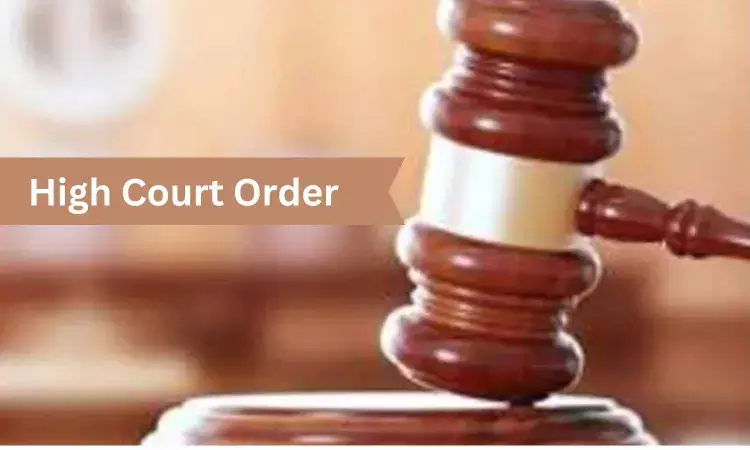- Home
- Medical news & Guidelines
- Anesthesiology
- Cardiology and CTVS
- Critical Care
- Dentistry
- Dermatology
- Diabetes and Endocrinology
- ENT
- Gastroenterology
- Medicine
- Nephrology
- Neurology
- Obstretics-Gynaecology
- Oncology
- Ophthalmology
- Orthopaedics
- Pediatrics-Neonatology
- Psychiatry
- Pulmonology
- Radiology
- Surgery
- Urology
- Laboratory Medicine
- Diet
- Nursing
- Paramedical
- Physiotherapy
- Health news
- Fact Check
- Bone Health Fact Check
- Brain Health Fact Check
- Cancer Related Fact Check
- Child Care Fact Check
- Dental and oral health fact check
- Diabetes and metabolic health fact check
- Diet and Nutrition Fact Check
- Eye and ENT Care Fact Check
- Fitness fact check
- Gut health fact check
- Heart health fact check
- Kidney health fact check
- Medical education fact check
- Men's health fact check
- Respiratory fact check
- Skin and hair care fact check
- Vaccine and Immunization fact check
- Women's health fact check
- AYUSH
- State News
- Andaman and Nicobar Islands
- Andhra Pradesh
- Arunachal Pradesh
- Assam
- Bihar
- Chandigarh
- Chattisgarh
- Dadra and Nagar Haveli
- Daman and Diu
- Delhi
- Goa
- Gujarat
- Haryana
- Himachal Pradesh
- Jammu & Kashmir
- Jharkhand
- Karnataka
- Kerala
- Ladakh
- Lakshadweep
- Madhya Pradesh
- Maharashtra
- Manipur
- Meghalaya
- Mizoram
- Nagaland
- Odisha
- Puducherry
- Punjab
- Rajasthan
- Sikkim
- Tamil Nadu
- Telangana
- Tripura
- Uttar Pradesh
- Uttrakhand
- West Bengal
- Medical Education
- Industry
Medical Reimbursement to patients Valid Even for Treatment at Unapproved Hospitals in Emergency: HC

Punjab and Haryana High Court
Chandigarh: Granting full medical reimbursement to a patient, who underwent liver transplant surgery, the Punjab and Haryana High Court ruled that in life-or-death emergencies, it does not matter for medical reimbursement purposes whether a hospital is approved or not.
With this observation, the HC bench comprising Justice Jasgurpreet Singh held that the petitioner was entitled to the "balance amount of 10 lakh". The High Court was considering the question of whether the petitioner, who underwent liver transplant surgery at a Chennai-based hospital in an emergency condition, was entitled to full medical reimbursement even though the healthcare institute was "unapproved".
The petitioner was working as a Junior Engineer with the Haryana State Agriculture Marketing Board. Initially, he was being treated at Delhi-based Institute of Liver and Biliary Sciences. This hospital was empanelled hospital and therefore was covered for medical reimbursement.
Even though his daughter was identified as a donor at first, later she was deemed unfit for donation. Therefore, the liver transplant surgery could not take place at the Delhi hospital and consequently, the petitioner sought a liver transplant at the Chennai-based hospital, since a compatible donor was available at the hospital.
Tribune has reported that the counsel for the petitioner argued that the donors and donees were put on a national portal for correlating their vitals for donation. The Chennai-based hospital had informed the petitioner that a compatible donor was available as far as the vitals and other medical conditions were concerned. Therefore, the petitioner had no option but to rush to the institute for transplantation.
Taking note of these factors, the HC bench of Justice Puri observed, "The facts suggest that the petitioner actually got treatment of liver transplant from Chennai, and he has been discharged from the hospital, and as per the counsel for the petitioner, he is medically well now."
While the petitioner sought full reimbursement of the treatment cost, the Board contested the claim citing its medical reimbursement policy that restricted reimbursement for medical treatment at unapproved hospitals.
However, the High Court noted that the petitioner had acted diligently by initially seeking treatment at an approved hospital. Since, a suitable donor was unavailable, the petitioner was compelled to be shifted to an unapproved facility in an emergency to save his life.
"In the entire scenario, the petitioner, in order to save his life, had gone to the hospital at Chennai in an emergency condition, which is an unapproved hospital, for the purpose of liver transplantation and saved his life," observed the Court.
Relying on previous legal precedence, the HC bench noted that "the law did not require prior permission in a situation where the survival of the person was the prime consideration."
Recently, the Delhi High Court bench had made similar observations when it directed the concerned authorities to reimburse Rs.5,85,523 to a petitioner who was denied a medical reimbursement claim under the Central Government Health Scheme (CGHS) after receiving treatment at a non-empanelled hospital.
The HC Single Judge bench comprising Justice Jyoti Singh had found that the petitioner could not find a hospital empanelled under the scheme as she required an emergency treatment after an accident and considering that her life was on the line, she could not be denied the reimbursement under the CGHS scheme.
M.A in English Barsha completed her Master's in English from the University of Burdwan, West Bengal in 2018. Having a knack for Journalism she joined Medical Dialogues back in 2020. She mainly covers news about medico legal cases, NMC/DCI updates, medical education issues including the latest updates about medical and dental colleges in India. She can be contacted at editorial@medicaldialogues.in.


